Summary
One of the Center for Biodiversity Outcomes’ strategic priorities is to train the next generation of biodiversity leaders. To do this, we have developed programs to provide basic literacy in environment and ecological sustainability and leadership, with a particular focus on engaging underserved youth.
Through collaboration with internal and external centers, organizations and schools, programs focus on mentoring students, offering culturally responsive STEM educational experiences, and providing students with opportunities that move them into successful and impactful careers in conservation and science.
GirlsConserve
GirlsConserve is a program that holds 9th -12th grade immersion camps that combine environmental leadership training, real-world experiences, and topics that most interest students. These camps allow students to participate in place-based and culturally responsive activities based on One Health inspired curricula.
Students explore how their lived experiences set them up to be change-makers for the world. Topics in environmental quality, environmental justice, and the interaction between environmental health and public health are explored through on-campus programs, field trips, and collaboration with peers from other Arizona high schools. Students gain valuable professional development experiences that include working on a team, developing projects, and practicing presentation skills.
Students do not need to have prior experience in environmental studies to participate in the program.
Future camp dates and details are to be determined—stay tuned!
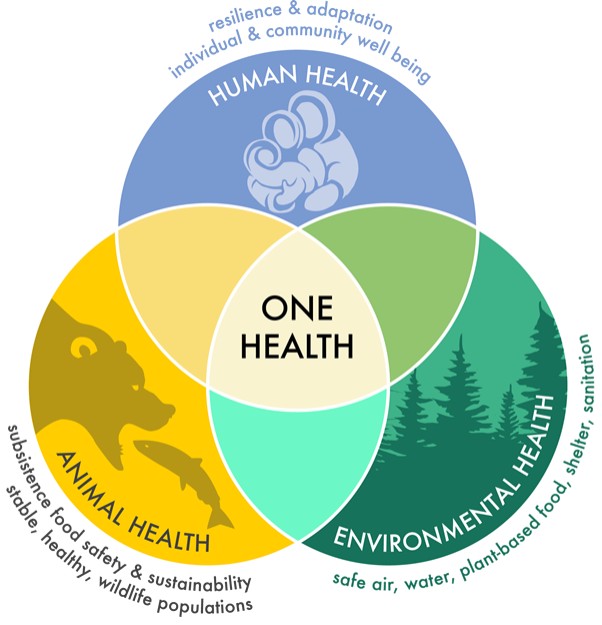
One Health Curriculum
One Health is an approach that acknowledges that the well-being and health of humans relate to the overall health of animals and the environment.
Past program highlights
Fall interpretive hike
High school participants accompanied ASU students and faculty on an interpretive hike on the Hieroglyphics Trail in Tonto National Forest.
Spring break camp
During this week-long camp, student participants engaged in numerous classroom and nature-based activities hosted by ASU students and faculty associated with the Environmental Communication and Leadership program and the Center for Gender Equality in Science and Technology.
Examples of the activities include:
- Hikes in the Superstition Mountains and Papago Park
- Mindfulness activities and future visioning
- Biodiversity concepts and ecosystem services
- Reflections on environmental issues, especially in the Sonoran Desert ecosystem
- Discussions about environmental justice and actions they can take
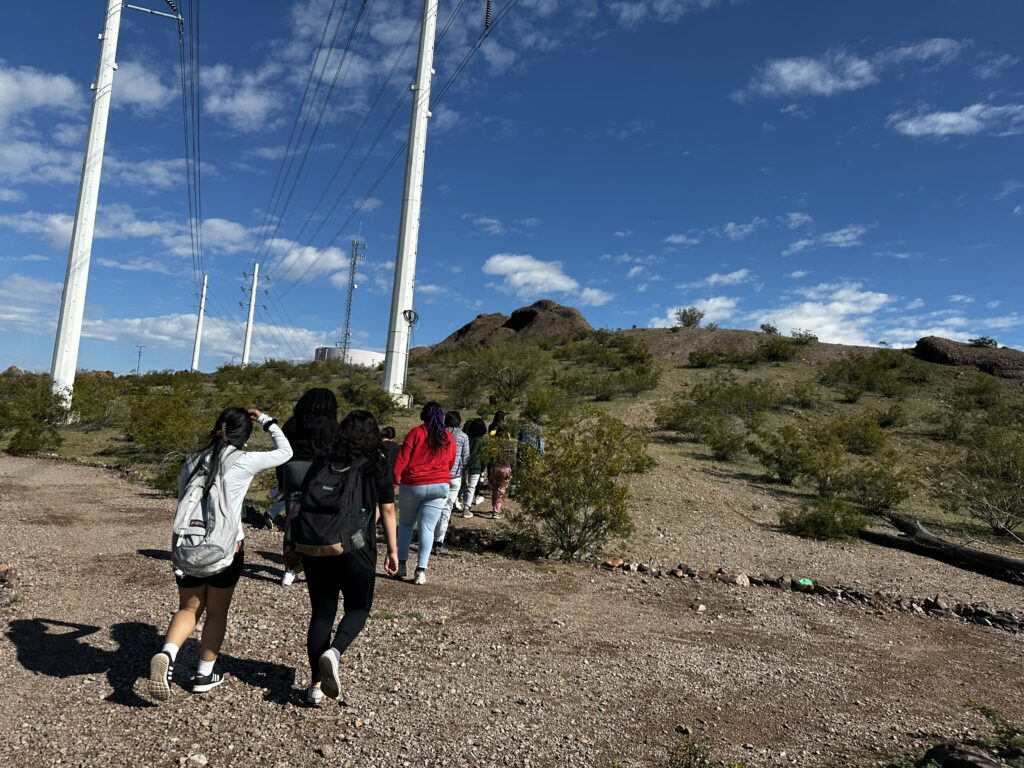
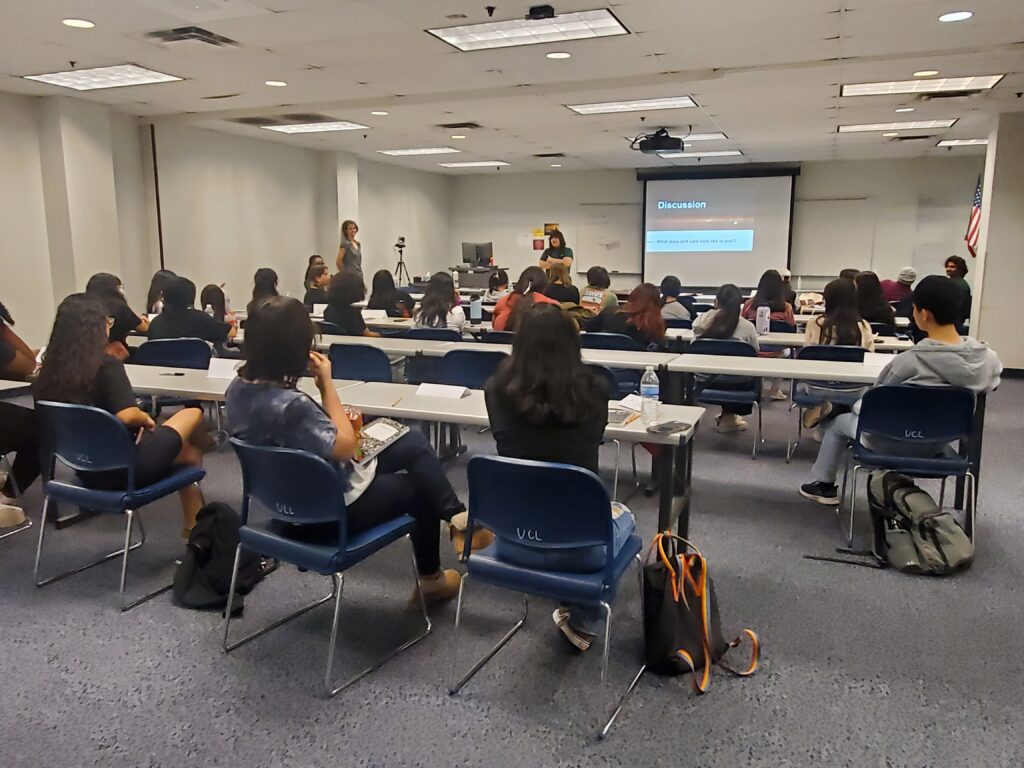
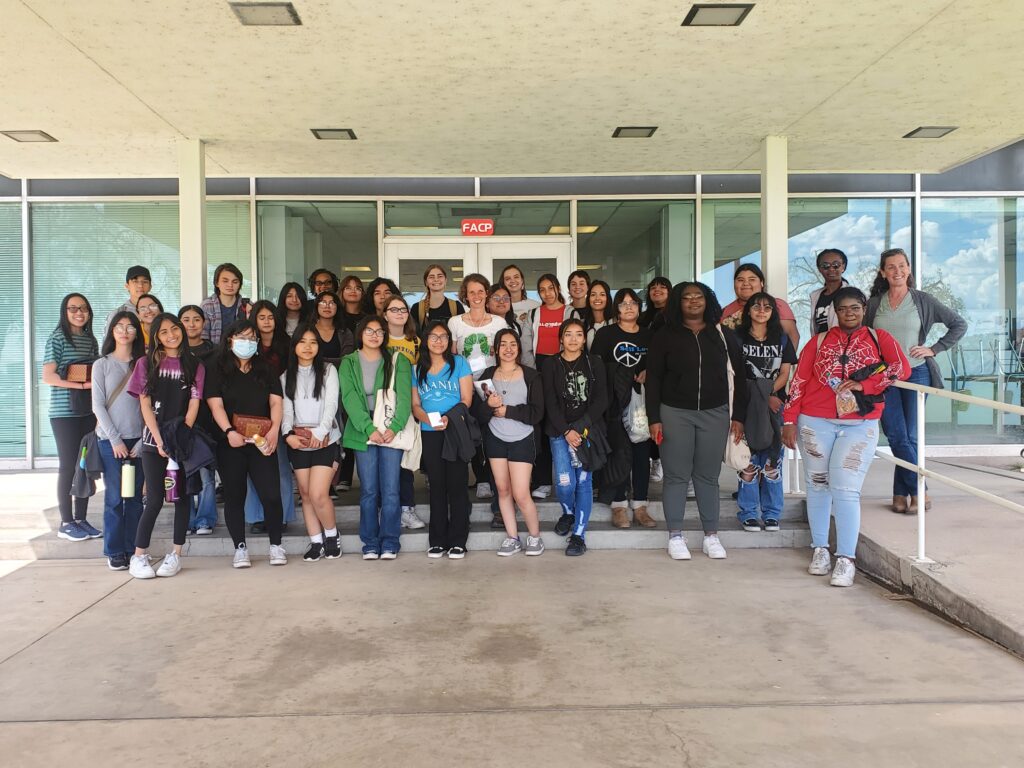
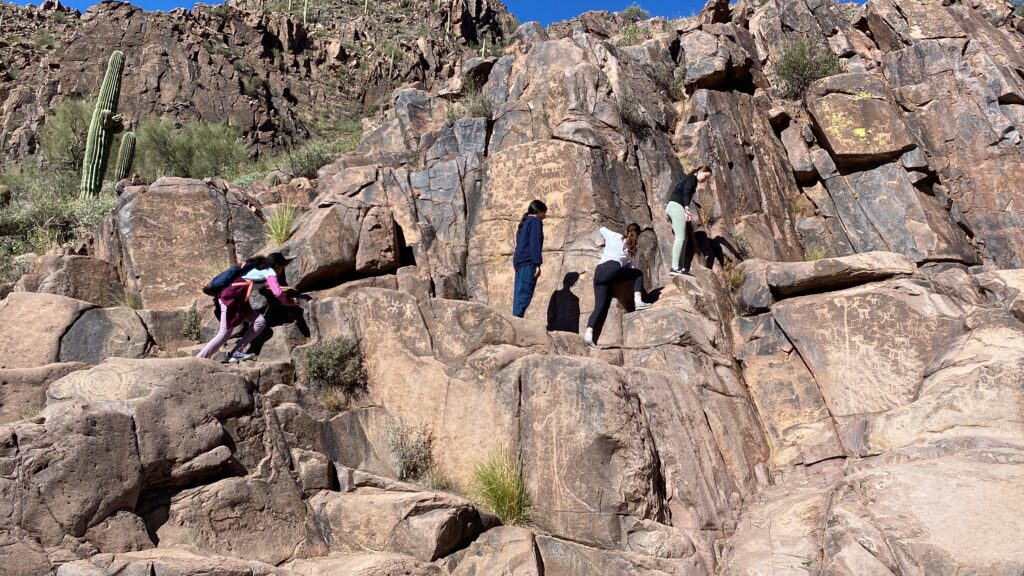
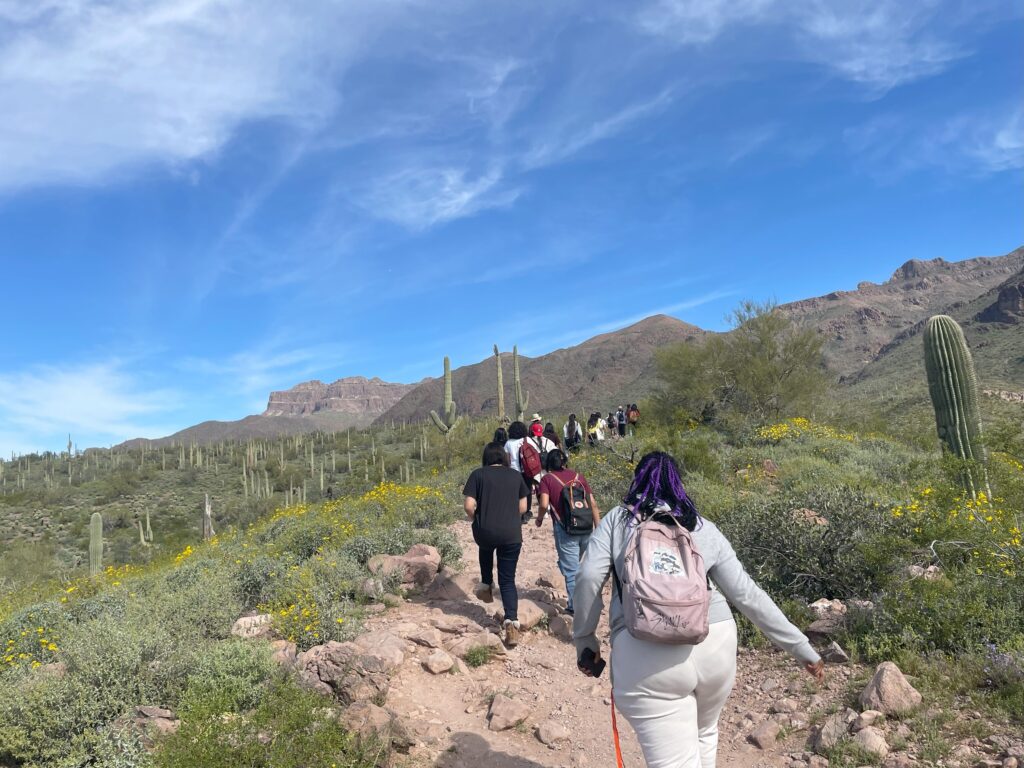
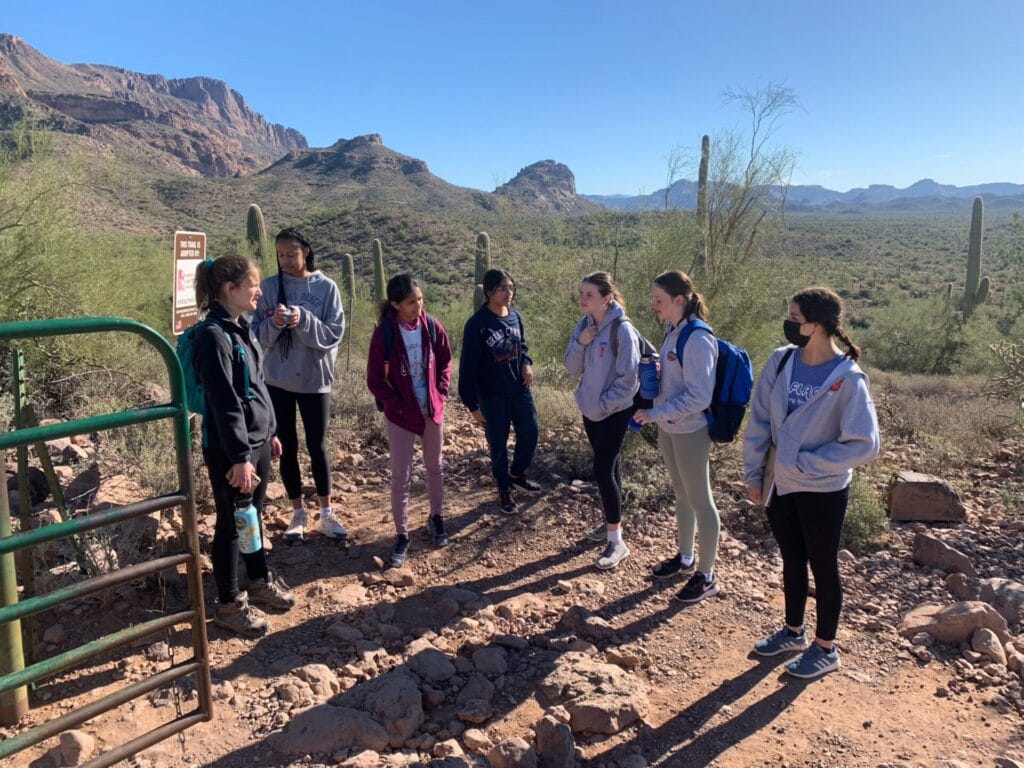
Publications
- Hellmann, J. J., & Gerber, L. R. (2019). Challenges and Opportunities for training agents of change in the Anthropocene. In Developing Change Agents: Innovative Practices for Sustainability Leadership. University of Minnesota Libraries Publishing. https://open.lib.umn.edu/changeagents/chapter/training-agents-of-change/
- Beyond the Academy (2022). Edited by B.L. Keeler and C. Locke. Guidebook for the Engaged University: Best Practices for Reforming Systems of Reward, Fostering Engaged Leadership, and Promoting Action-Oriented Scholarship. http://beyondtheacademynetwork.org/guidebook/
- Gerber, L. R., Reeves‐Blurton, Z., Gueci, N., Iacona, G. D., Beaudette, J. A., & Pipe, T. (2023). Practicing mindfulness in addressing the biodiversity crisis. Conservation Science and Practice, 5(7). https://doi.org/10.1111/csp2.12945
Partners and funding
- ASU Women and Philanthropy
- ASU Environmental Leadership and Communications certificate program
- ASU Center for Gender Equity in Science and Technology